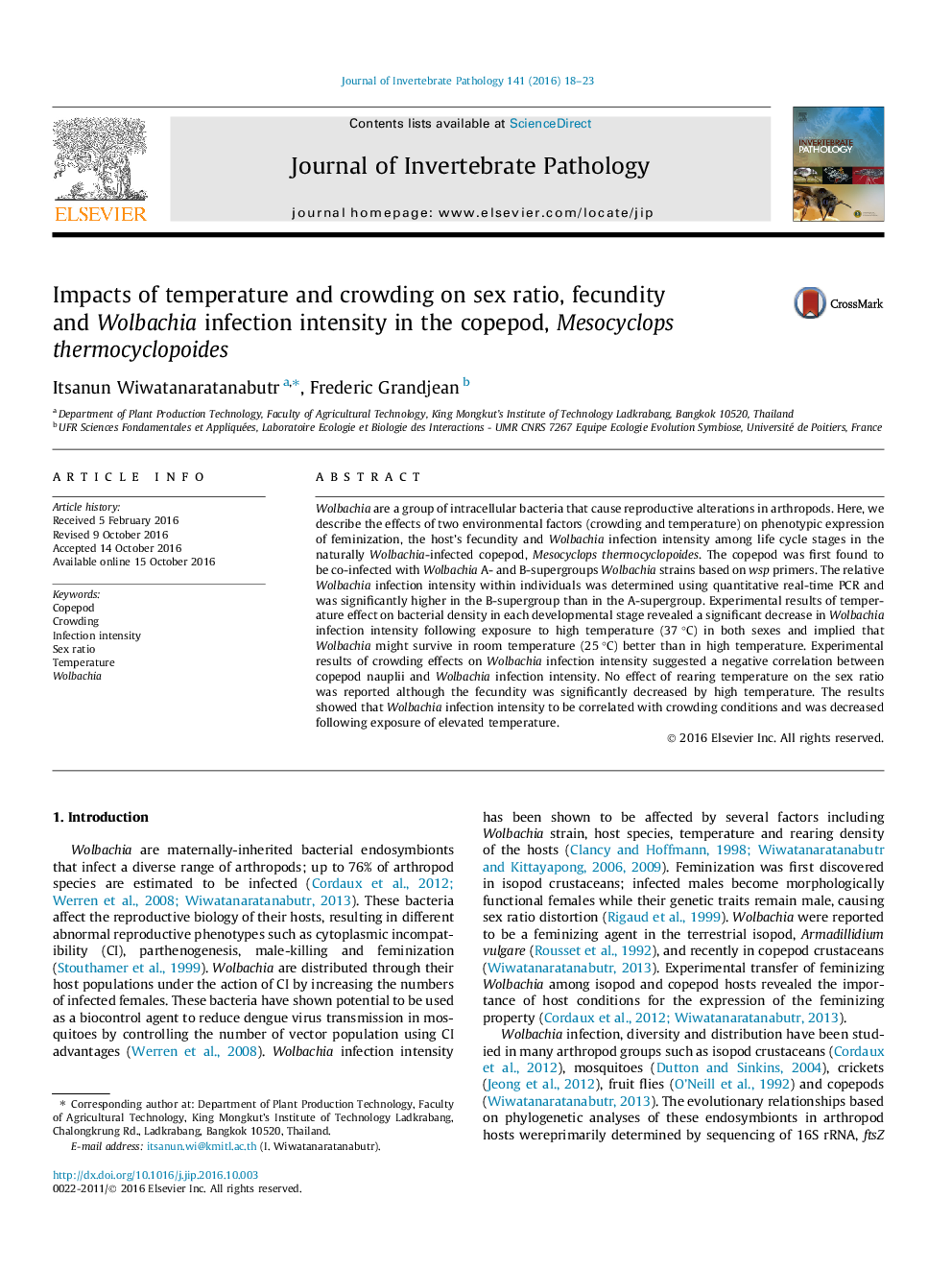| Article ID | Journal | Published Year | Pages | File Type |
|---|---|---|---|---|
| 4557469 | Journal of Invertebrate Pathology | 2016 | 6 Pages |
•Two strains of Wolbachia infected the copepod Mesocyclops thermocyclopoides.•High temperature reduced fecundity and Wolbachia infection intensity, but had no effect on sex ratio.•Density of copepod nauplii was inversely correlated with Wolbachia infection intensity.
Wolbachia are a group of intracellular bacteria that cause reproductive alterations in arthropods. Here, we describe the effects of two environmental factors (crowding and temperature) on phenotypic expression of feminization, the host’s fecundity and Wolbachia infection intensity among life cycle stages in the naturally Wolbachia-infected copepod, Mesocyclops thermocyclopoides. The copepod was first found to be co-infected with Wolbachia A- and B-supergroups Wolbachia strains based on wsp primers. The relative Wolbachia infection intensity within individuals was determined using quantitative real-time PCR and was significantly higher in the B-supergroup than in the A-supergroup. Experimental results of temperature effect on bacterial density in each developmental stage revealed a significant decrease in Wolbachia infection intensity following exposure to high temperature (37 °C) in both sexes and implied that Wolbachia might survive in room temperature (25 °C) better than in high temperature. Experimental results of crowding effects on Wolbachia infection intensity suggested a negative correlation between copepod nauplii and Wolbachia infection intensity. No effect of rearing temperature on the sex ratio was reported although the fecundity was significantly decreased by high temperature. The results showed that Wolbachia infection intensity to be correlated with crowding conditions and was decreased following exposure of elevated temperature.
Graphical abstractFigure optionsDownload full-size imageDownload as PowerPoint slide
